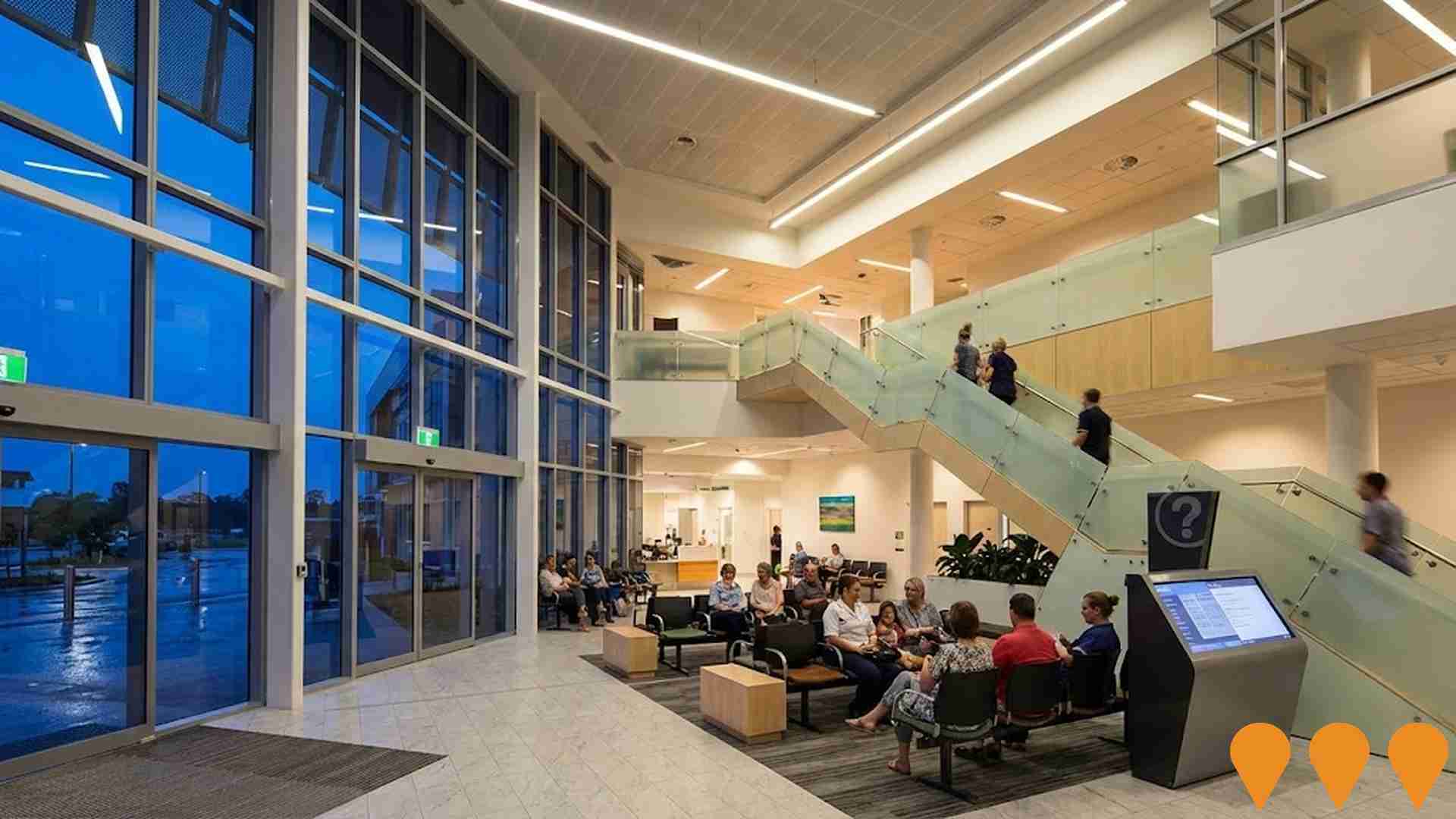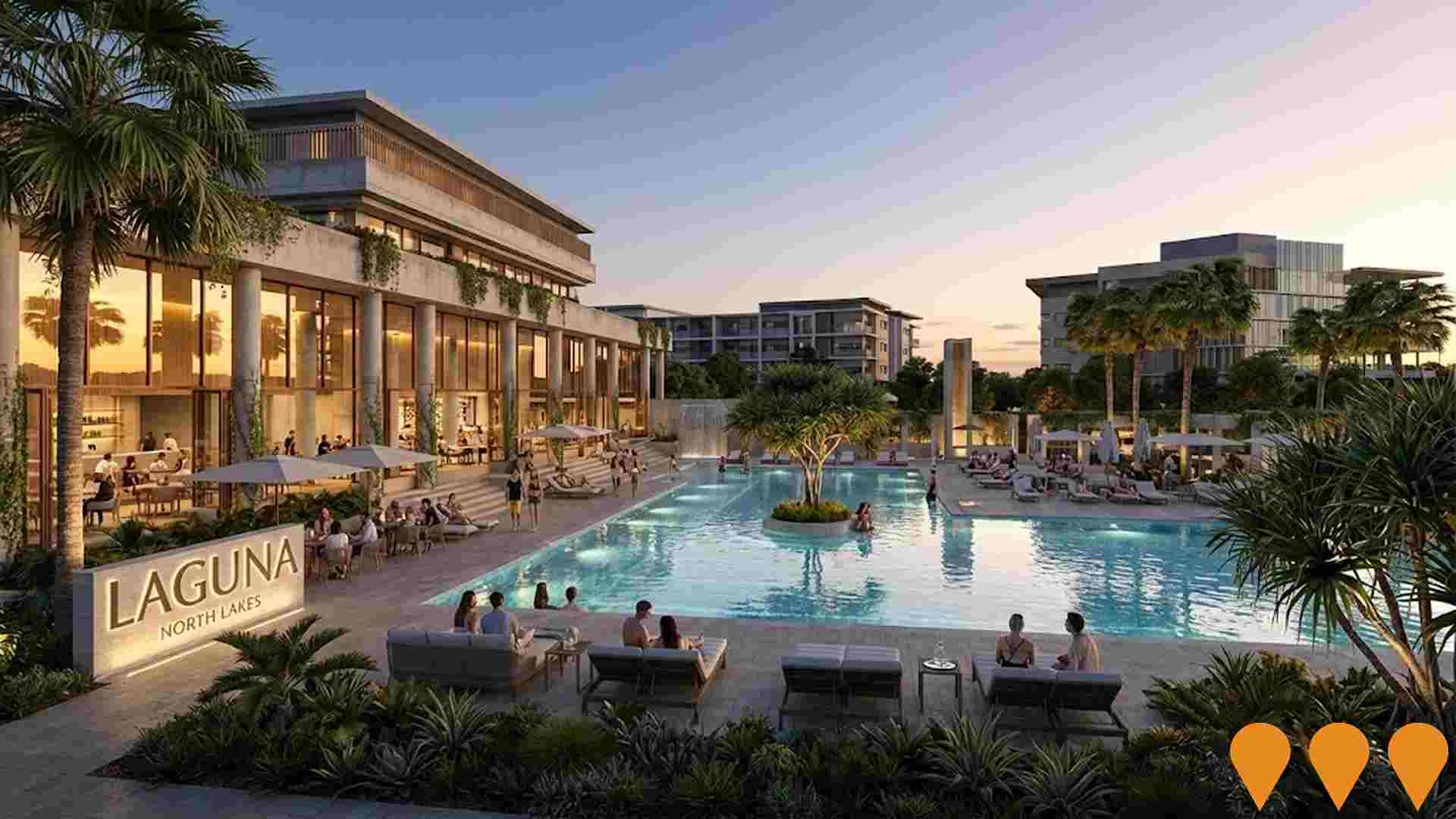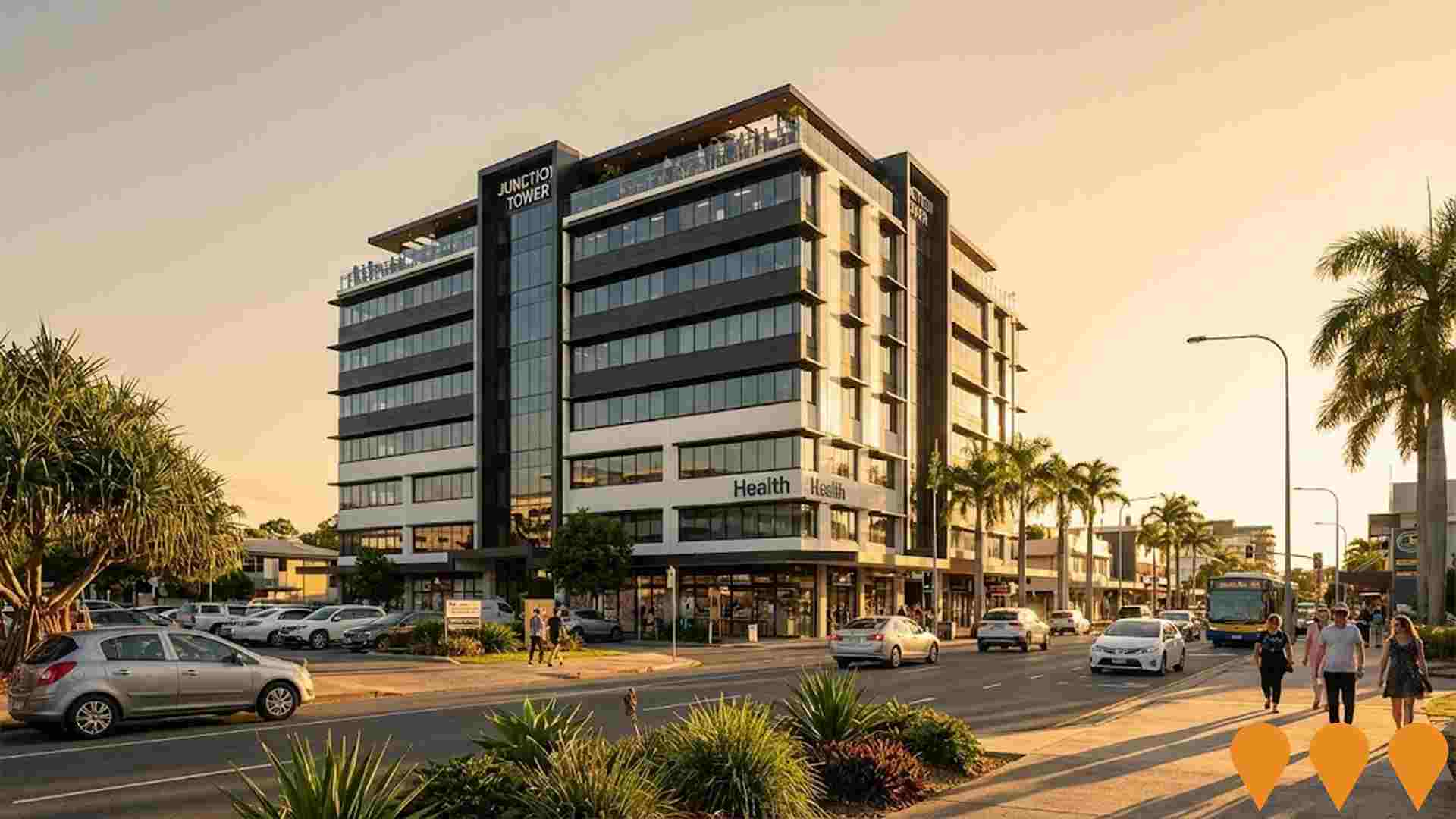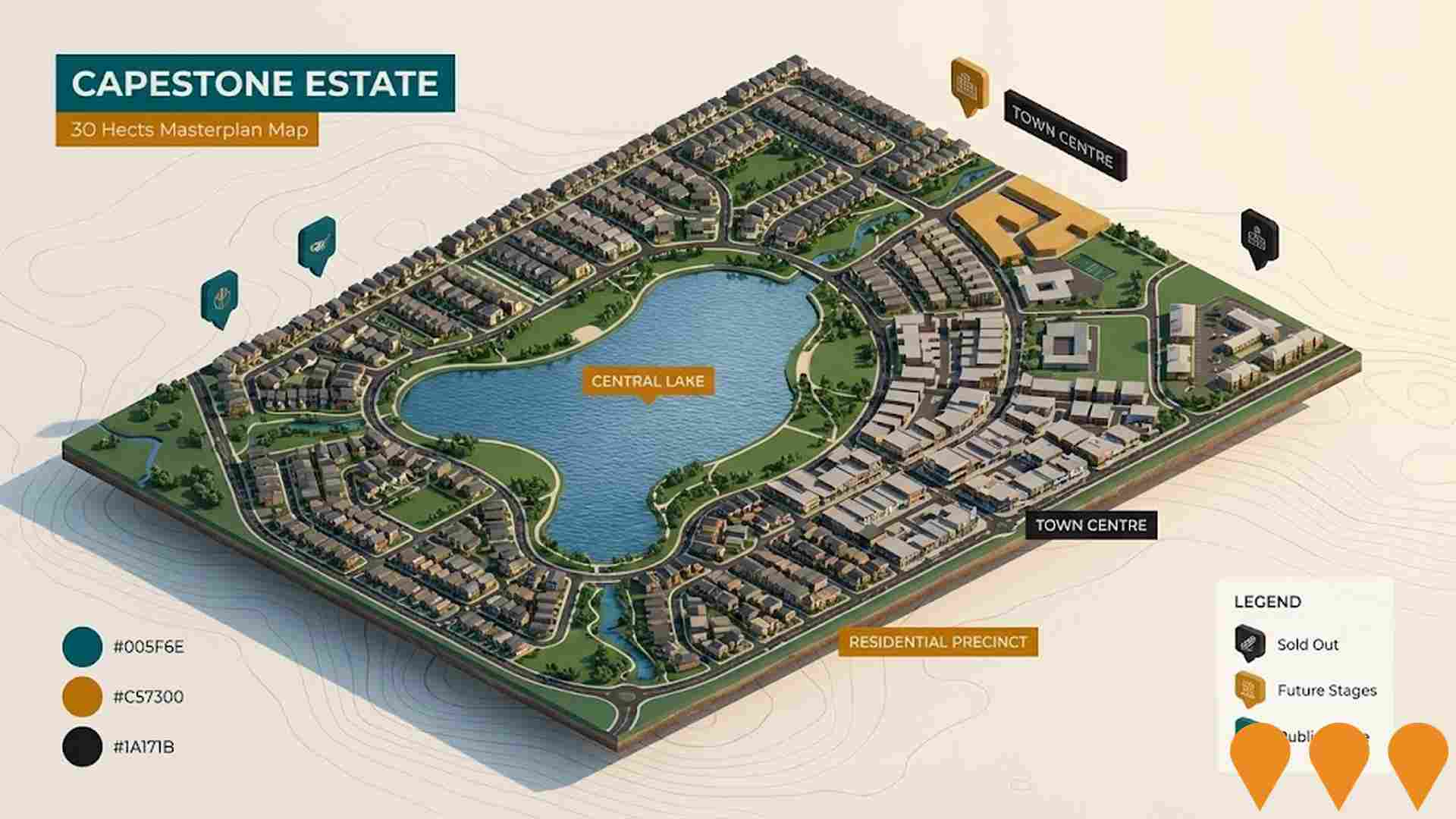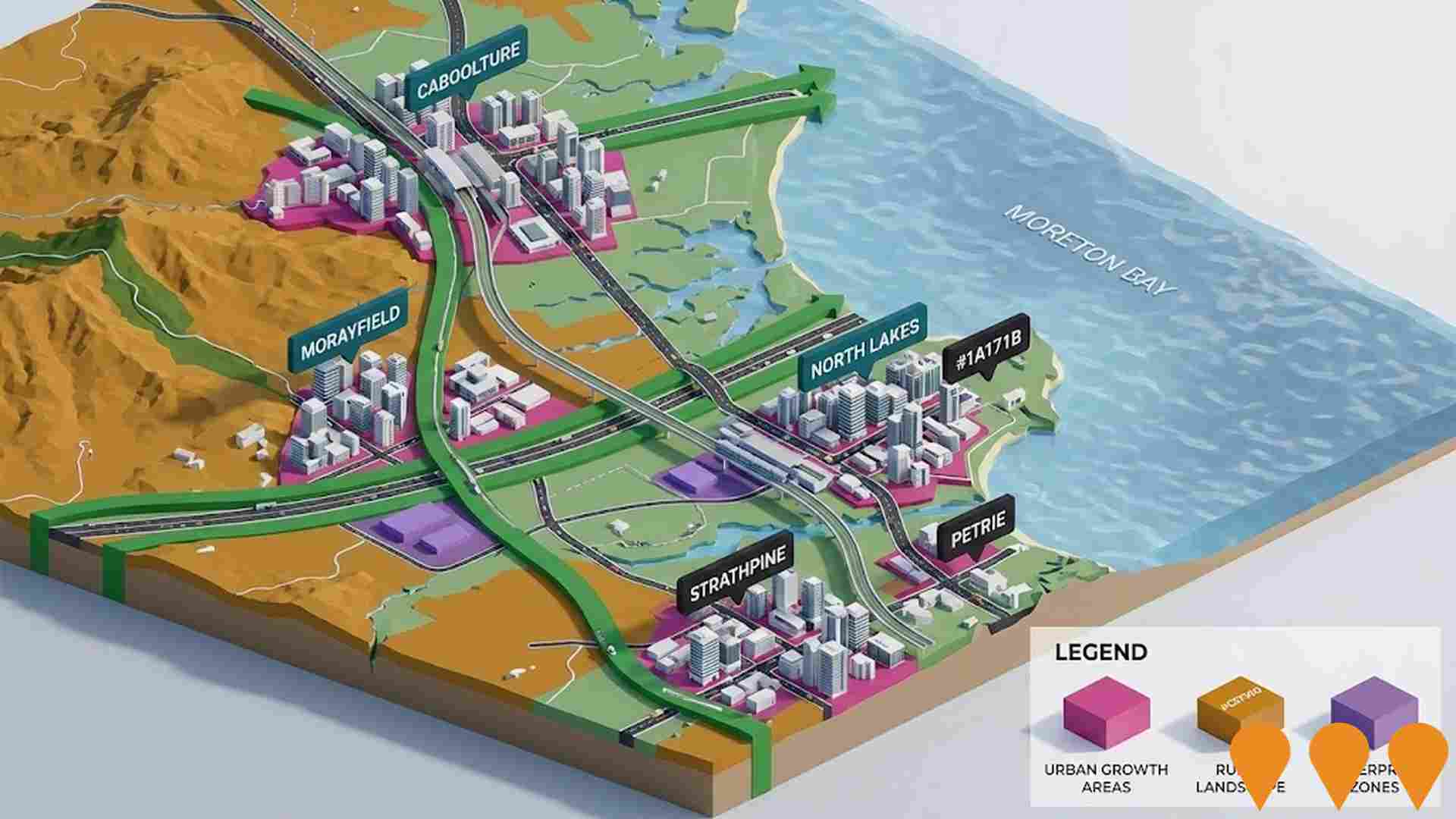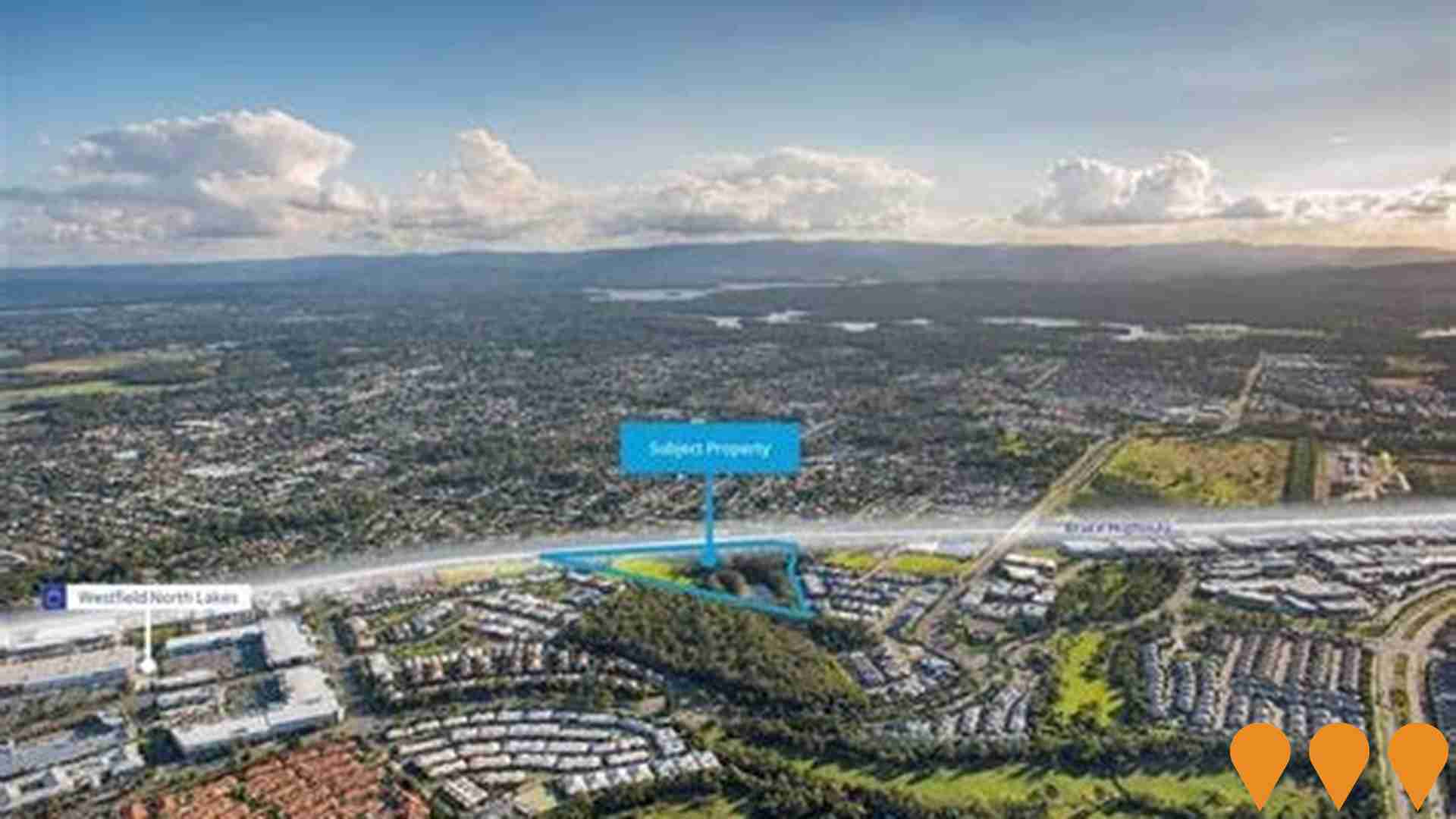Chart Color Schemes
This analysis uses ABS Statistical Areas Level 2 (SA2) boundaries, which can materially differ from Suburbs and Localities (SAL) even when sharing similar names.
SA2 boundaries are defined by the Australian Bureau of Statistics and are designed to represent communities for statistical reporting (e.g., census and ERP).
Suburbs and Localities (SAL) represent commonly-used suburb/locality names (postal-style areas) and may use different geographic boundaries. For comprehensive analysis, consider reviewing both boundary types if available.
est. as @ -- *
ABS ERP | -- people | --
2021 Census | -- people
Sales Activity
Curious about local property values? Filter the chart to assess the volume and appreciation (including resales) trends and regional comparisons, or scroll to the map below view this information at an individual property level.
Find a Recent Sale
Sales Detail
Population
Mango Hill lies within the top 10% of areas nationally in terms of population growth performance according to AreaSearch analysis of short and medium-term trends
AreaSearch's analysis shows Mango Hill's population was approximately 17,840 as of November 2025. This figure represents an increase of 2,919 people, a 19.6% rise from the 2021 Census count of 14,921. The change is inferred from ABS's estimated resident population of 17,546 in June 2024 and an additional 498 validated new addresses since the Census date. This results in a population density of 1,161 persons per square kilometer, similar to averages across locations assessed by AreaSearch. Mango Hill's growth rate exceeded the national average (8.9%) and its SA4 region, making it a growth leader. Interstate migration contributed approximately 52.6% of overall population gains during recent periods, with all drivers including overseas migration and natural growth being positive factors.
AreaSearch adopts ABS/Geoscience Australia projections for each SA2 area, released in 2024 using 2022 as the base year. For areas not covered by this data and years post-2032, Queensland State Government's SA2 area projections are used, released in 2023 based on 2021 data. However, these state projections do not provide age category splits, so AreaSearch applies proportional growth weightings in line with ABS Greater Capital Region projections for each age cohort, released in 2023 using 2022 data as the base year. Looking ahead, exceptional population growth is predicted over the period to 2041, with Mango Hill expected to grow by 8,582 persons, reflecting a total gain of 46.5% based on the latest annual ERP population numbers.
Frequently Asked Questions - Population
Development
The level of residential development activity in Mango Hill was found to be higher than 90% of real estate markets across the country
Mango Hill has approved approximately 239 new homes annually. Between FY-21 and FY-25, it approved a total of 1,199 homes, with an additional 21 approved in FY-26 so far. Each dwelling built over these years attracted an average of 3.6 people to the area.
This significant demand has outpaced supply, potentially leading to heightened buyer competition and pricing pressures. The average construction cost for new properties is $313,000. In FY-26, Mango Hill recorded $3.6 million in commercial development approvals, reflecting its primarily residential nature. Compared to Greater Brisbane, Mango Hill has seen 116.0% more development activity per person. However, recent periods have shown a moderation in development activity. New building activity consists of 25.0% detached houses and 75.0% attached dwellings, indicating a shift towards denser development that caters to downsizers, investors, and entry-level buyers. This trend differs from the area's current housing composition, which is 70.0% houses.
Mango Hill has approximately 93 people per dwelling approval, suggesting an expanding market. By 2041, it is forecasted to gain 8,288 residents. With current construction levels, housing supply should meet demand adequately, creating favorable conditions for buyers and potentially enabling growth that exceeds current forecasts.
Frequently Asked Questions - Development
Infrastructure
Mango Hill has very high levels of nearby infrastructure activity, ranking in the top 20% nationally
Changes to local infrastructure significantly affect an area's performance. AreaSearch has identified 50 projects likely to impact the area. Notable ones include Freshwater Hub, North Lakes Eco-Lifestyle Precinct, 14 Kerr Road East Development, and Capestone Estate. The following list details those most relevant.
Professional plan users can use the search below to filter and access additional projects.
INFRASTRUCTURE SEARCH
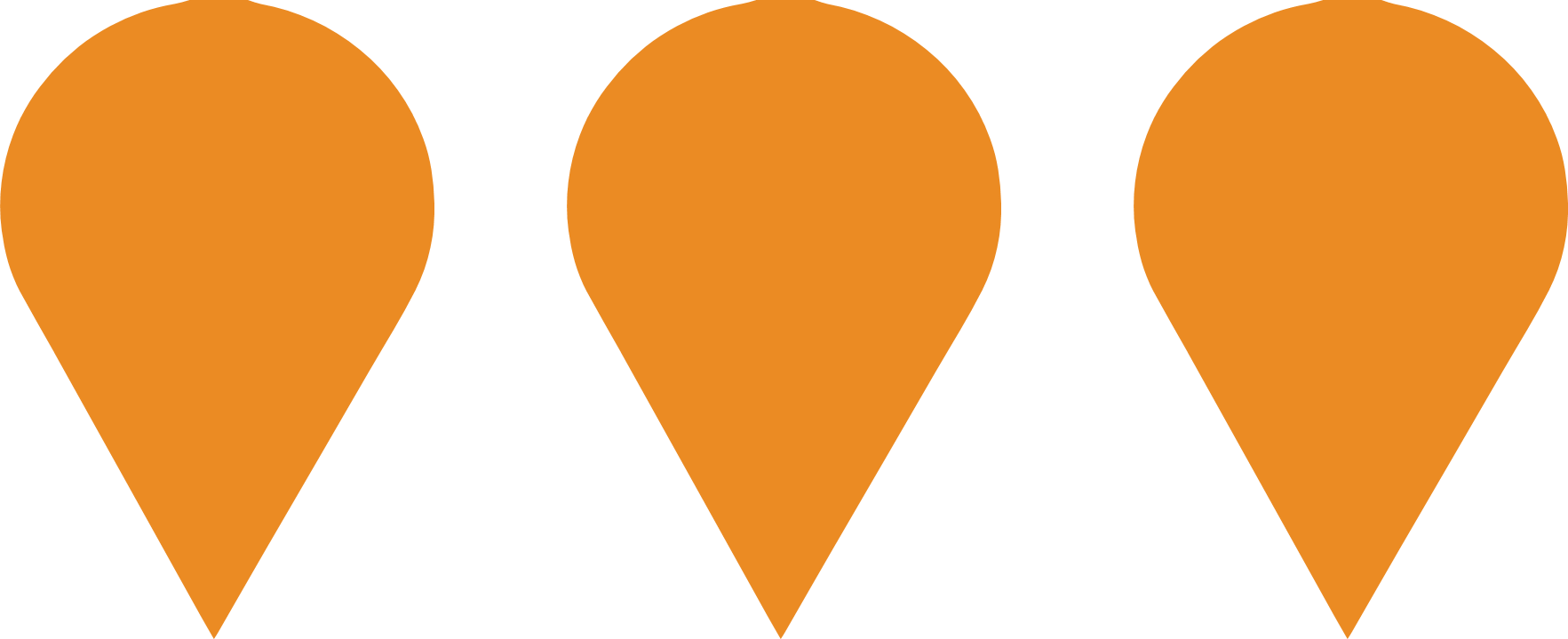 Denotes AI-based impression for illustrative purposes only, not to be taken as definitive under any circumstances. Please follow links and conduct other investigations from the project's source for actual imagery. Developers and project owners wishing us to use original imagery please Contact Us and we will do so.
Denotes AI-based impression for illustrative purposes only, not to be taken as definitive under any circumstances. Please follow links and conduct other investigations from the project's source for actual imagery. Developers and project owners wishing us to use original imagery please Contact Us and we will do so.
Frequently Asked Questions - Infrastructure
North Lakes Drive Mixed-Use Hotel Development
1.72 ha mixed-use development site opposite Westfield North Lakes, seeking expressions of interest for a 4-5 star hotel with conference and event facilities. The City of Moreton Bay is marketing the site for a landmark hospitality and tourism project to serve the growing North Lakes Town Centre and broader Moreton Bay region.
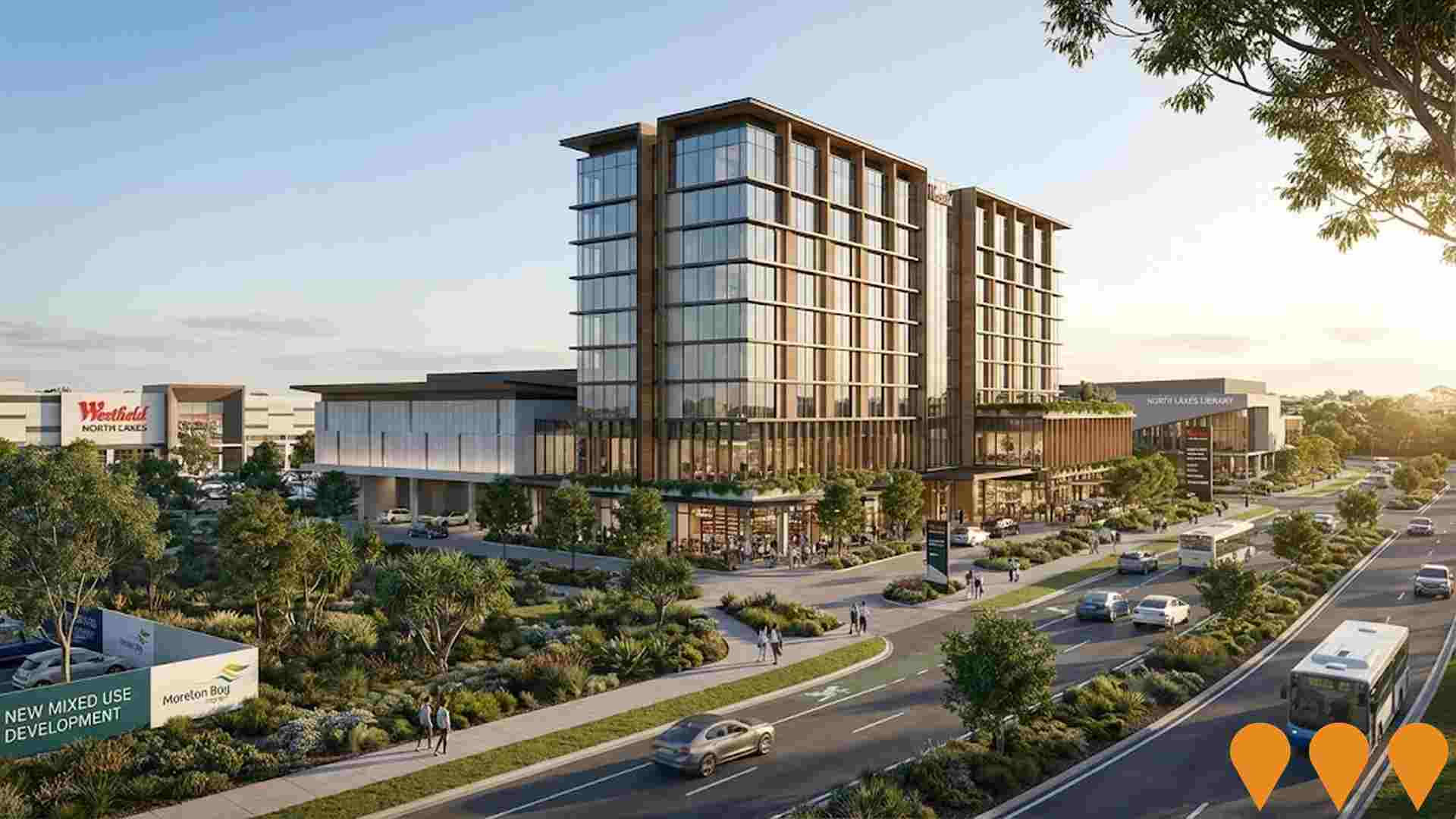
Freshwater Hub
Master-planned mixed-use precinct in Griffin comprising Freshwater Village (Woolworths-anchored neighbourhood centre with specialty tenancies and medical), Freshwater Harvest (urban farm), Freshwater Park (1.5ha parkland) and Freshwater Place (126-lot residential community). Road upgrades (Brays Rd widening, new signalised intersection and Arcadia Dr link) are underway. Tomkins Commercial appointed builder for Freshwater Village; opening targeted for late 2026 to early 2027.
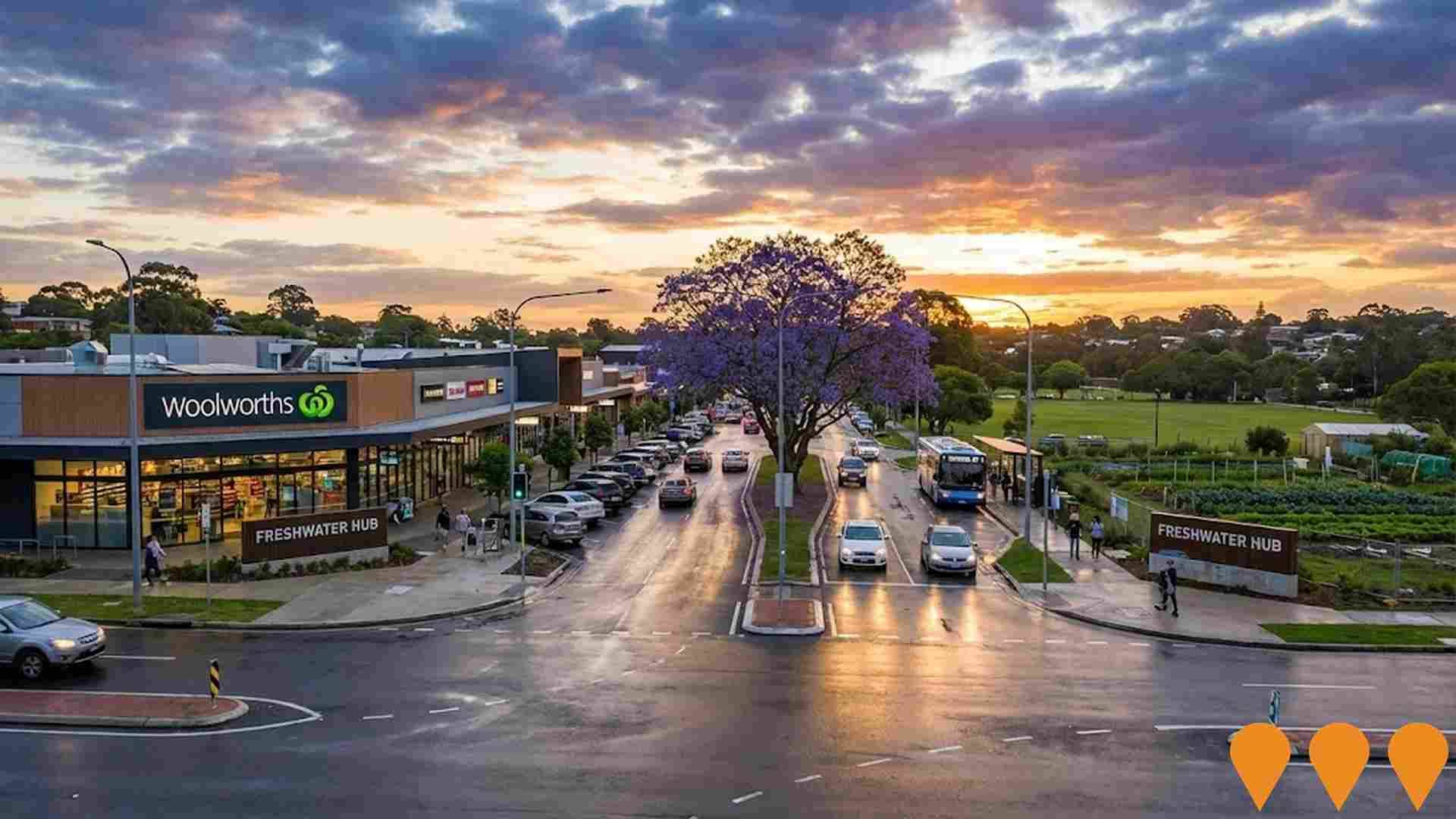
Westfield North Lakes 2016 Expansion (IKEA and New Mall)
The 2016 Stage 2 expansion of Westfield North Lakes was a $170 million redevelopment that added a new 18,000 sqm retail mall with approximately 60 new stores (including Kmart, JB Hi-Fi, Rebel Sport, Cotton On and others), a new dining and entertainment precinct known as The Laneway, Event Cinemas, improved parking facilities, and direct connection to a new 29,000 sqm IKEA superstore - the second IKEA in Queensland. This expansion significantly enhanced the centre's retail, dining, entertainment and community offerings for the rapidly growing North Lakes region.
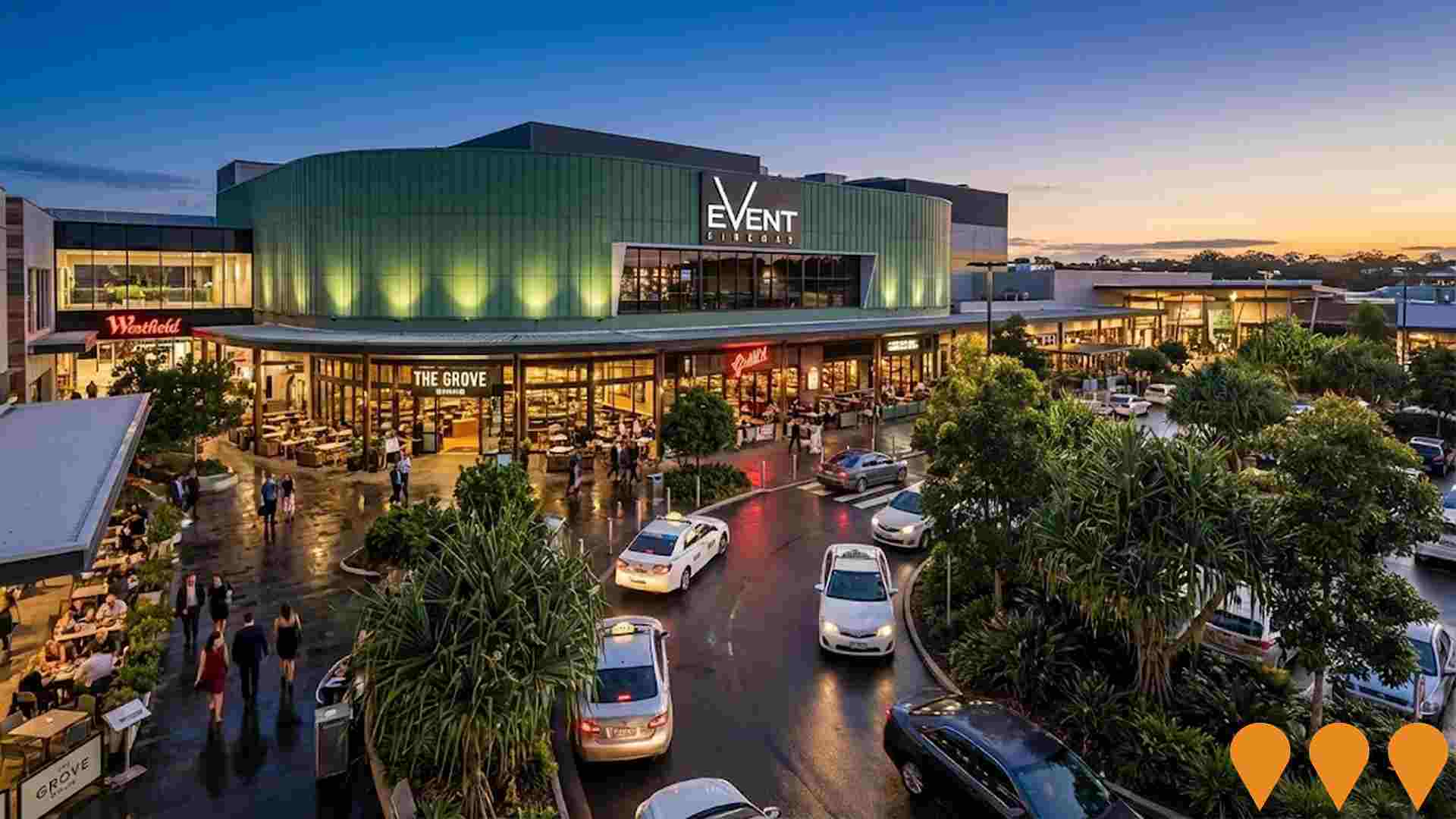
Capestone Village Shopping Centre
Capestone Village is a lifestyle retail destination with a focus on health and wellness, featuring an Everfresh IGA supermarket, specialty stores, medical facilities, gym, pharmacy, restaurants, and a public outdoor playground. It is located lakeside in the heart of the Capestone master-planned community in Mango Hill.
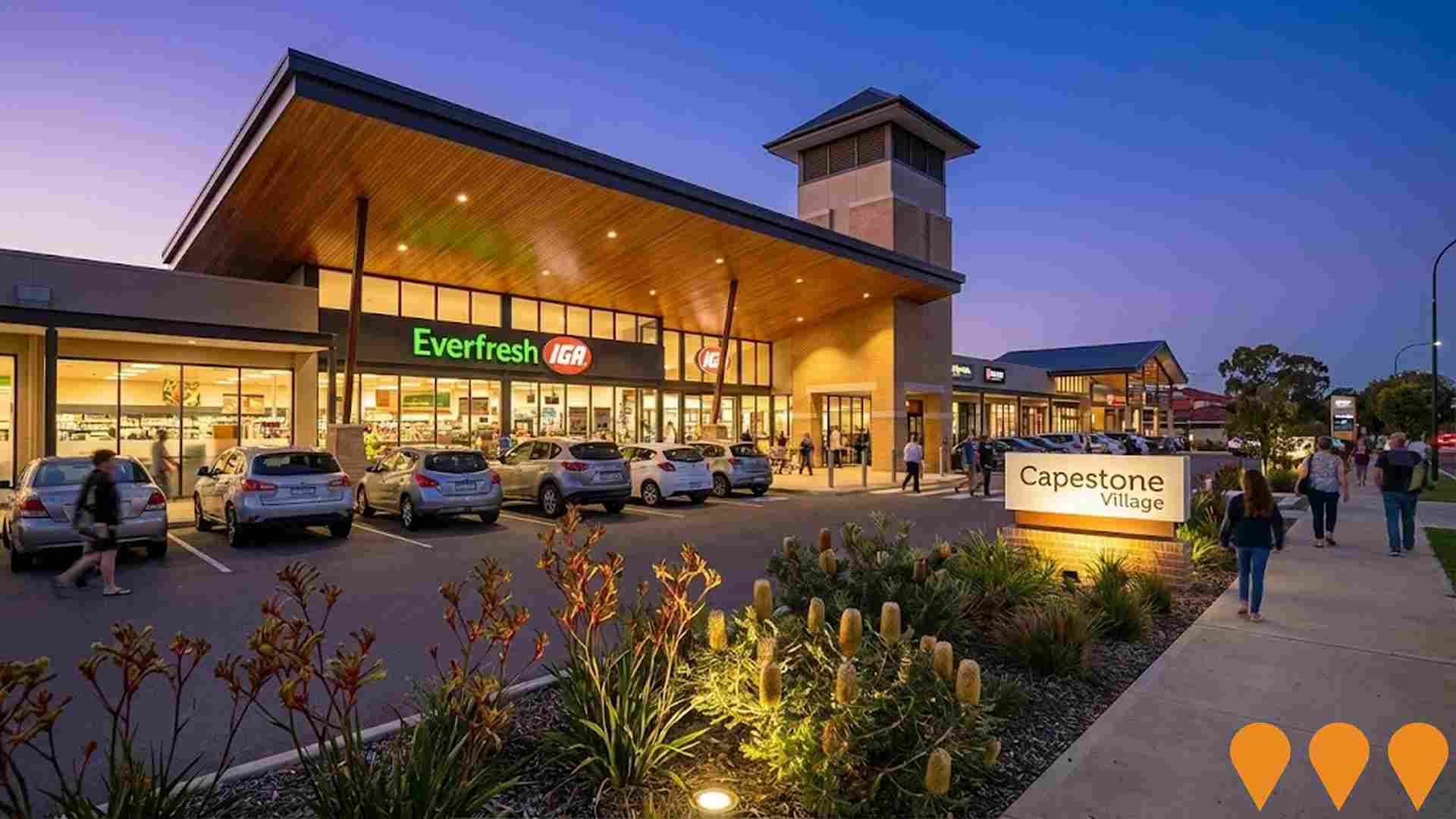
2006 Anzac Avenue Retail Centre
A neighbourhood retail centre featuring two freestanding buildings of approximately 500sqm each, providing essential services and convenience shopping for local residents. Current tenants include Tyreright auto services, Pet Mince Direct, Bharat Spices, and Andersens Flooring. The centre offers superb signage opportunities, ample on-site parking, and exposure to over 50,000 cars daily. Completed in August 2023.
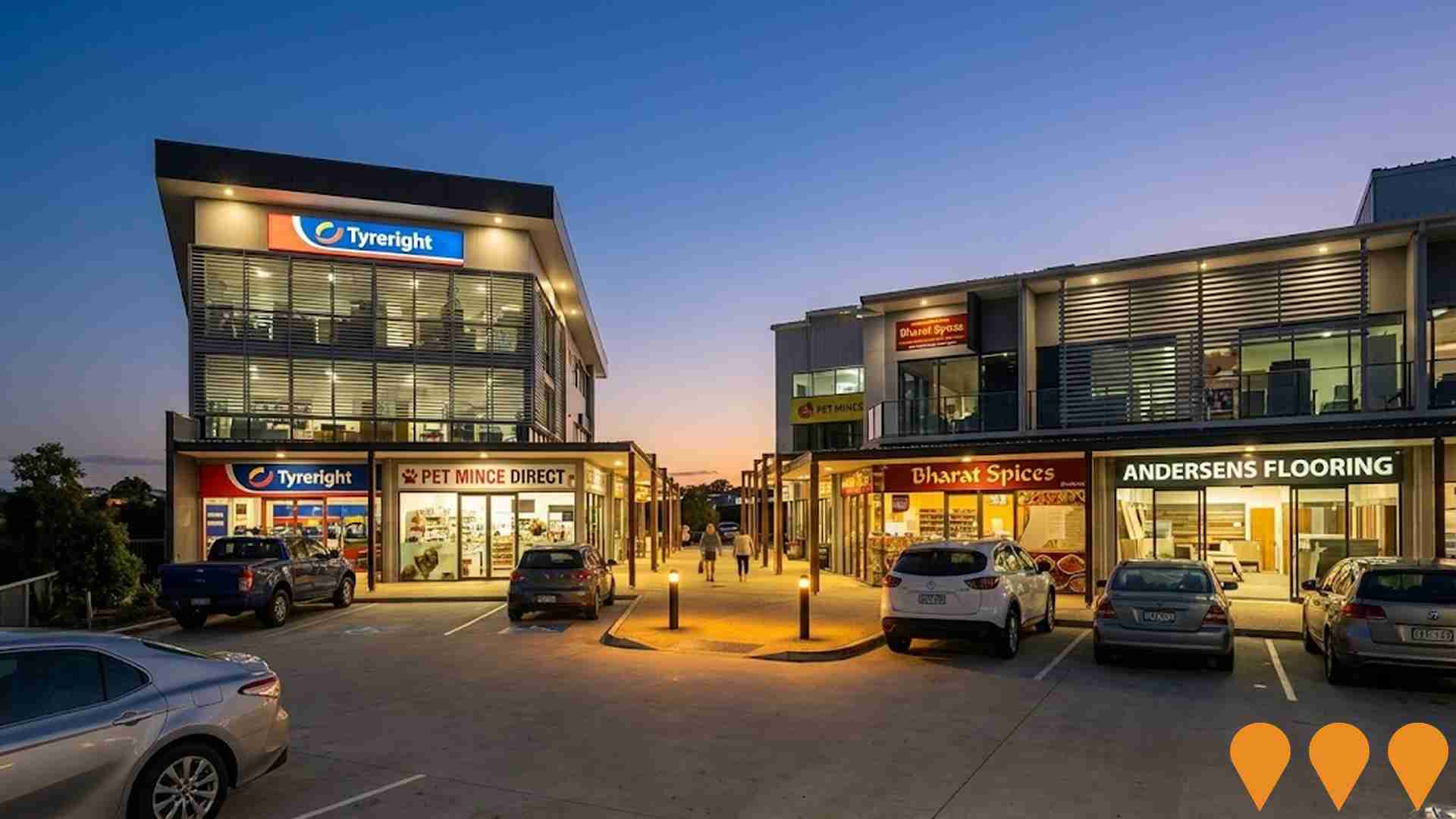
North Lakes Eco-Lifestyle Precinct
A $72 million eco-lifestyle hotel and wellness retreat featuring a 5-storey, 112-room hotel, 3-storey naturopathy centre, garden centre, health care services, function facility, farmers market, wildlife rehabilitation shelter, community food gardens and recreational areas.
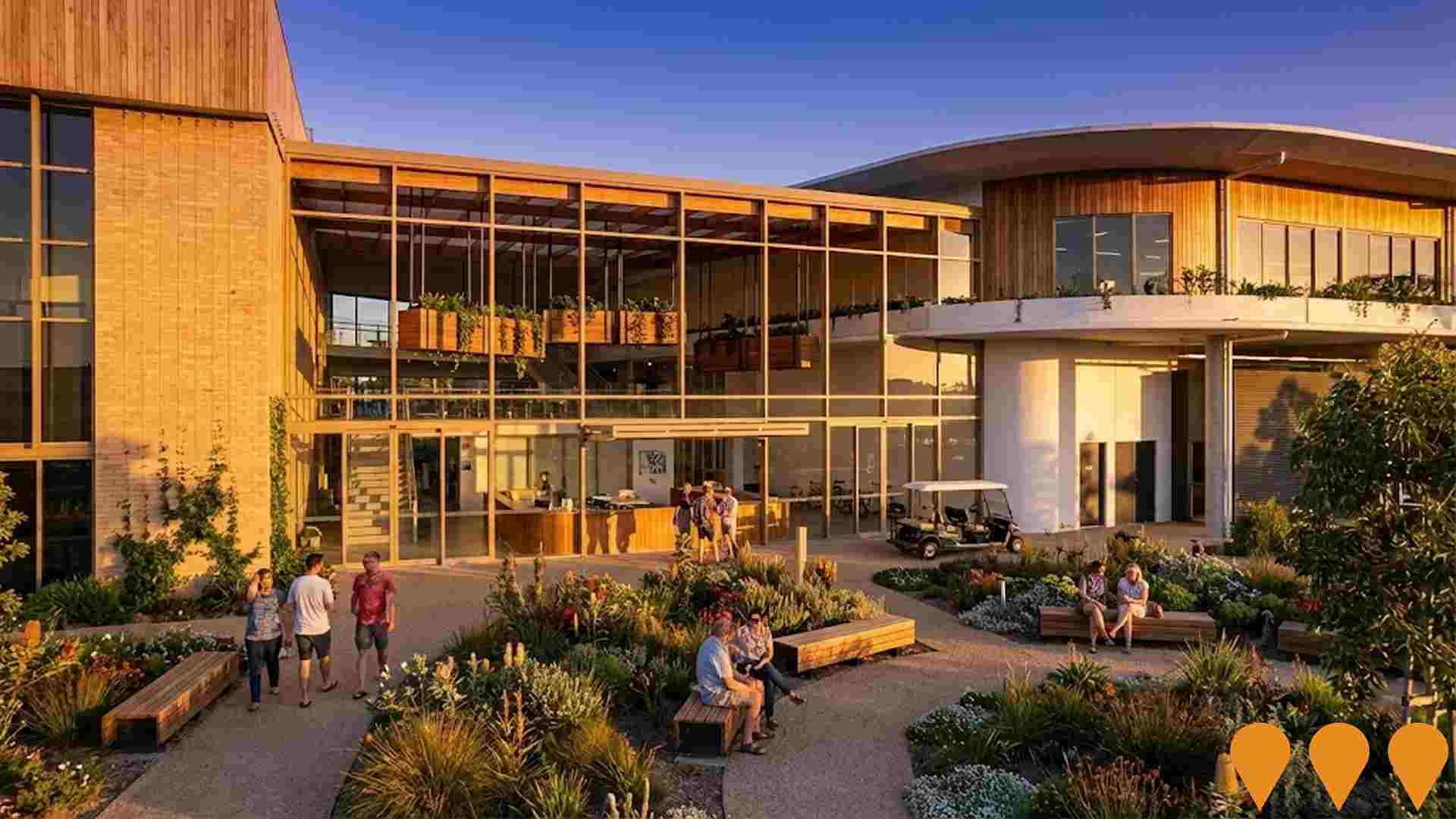
North Lakes Health Hub Expansion
Major expansion of the North Lakes Health Precinct including new medical facilities, minor injuries clinic operating 16 hours daily, renal dialysis unit with 12 chairs, chronic disease management services, and integrated primary care services. Designed to serve over 120,000 residents across the northern Brisbane suburbs.
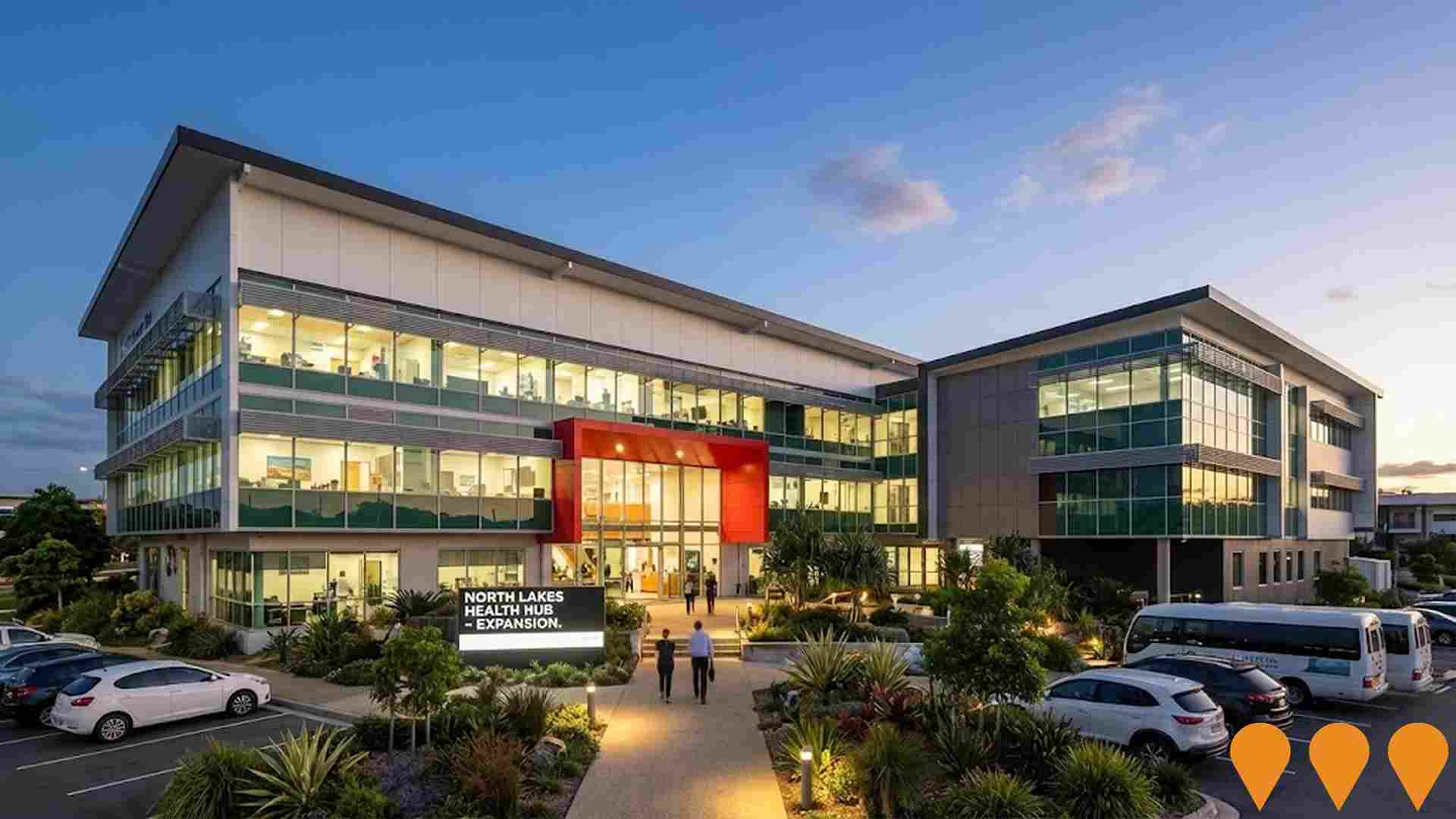
Mango Hill Train Station Park 'n' Ride Upgrade
A $10 million upgrade to the park 'n' ride facilities at Mango Hill Train Station, adding 280 new parking spaces to the existing 220 for a total of 500, including six accessible bays. The project also includes enhanced lighting and CCTV, landscaping, improved pedestrian connectivity, a relocated kiss 'n' ride, taxi zone, and bus facility for safer drop-offs. Jointly funded by the Australian and Queensland Governments, supporting local jobs and reducing congestion.
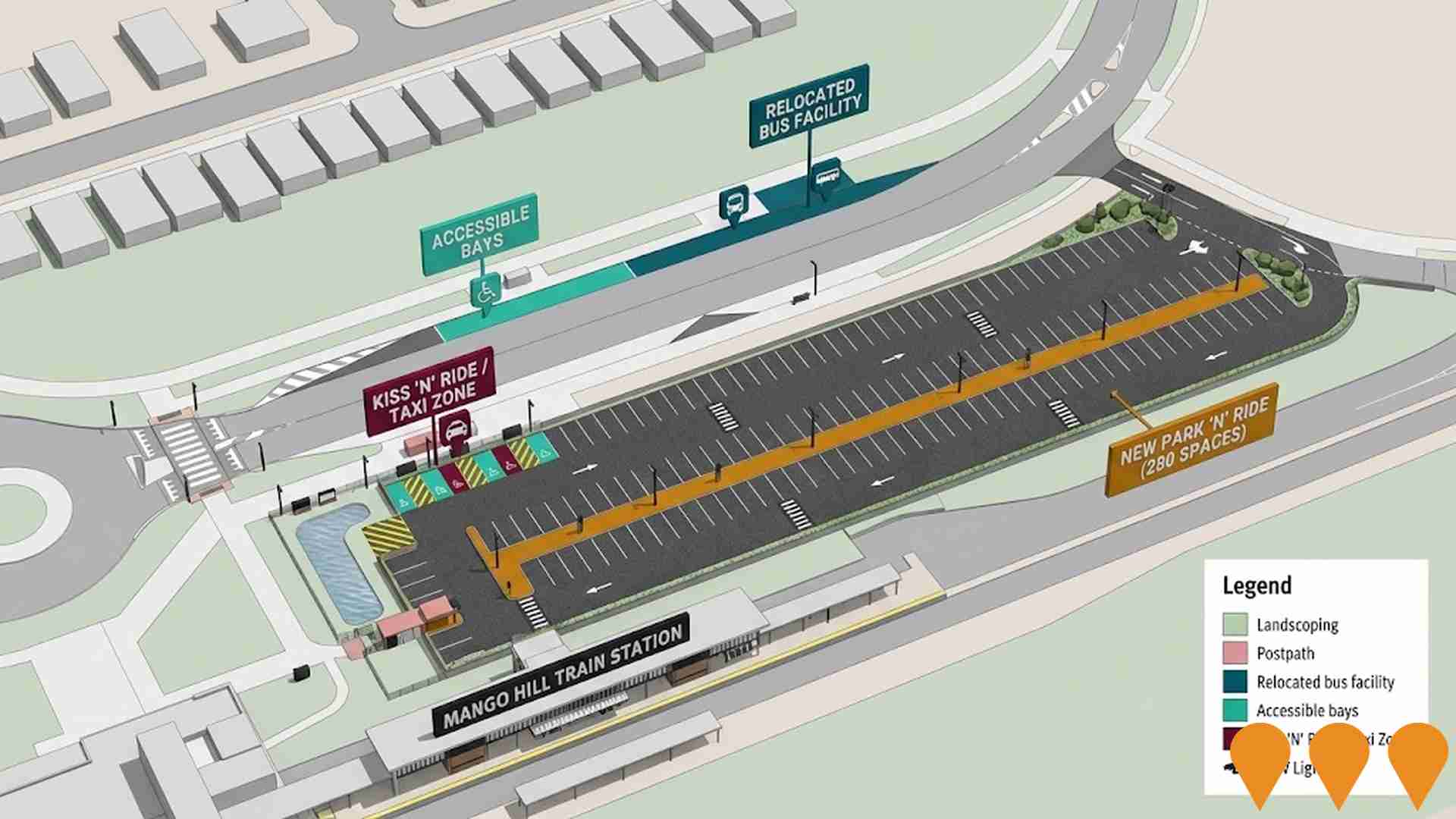
Employment
Employment conditions in Mango Hill demonstrate strong performance, ranking among the top 35% of areas assessed nationally
Mango Hill has an educated workforce with significant representation in essential services sectors. Its unemployment rate is 3.6%, lower than the national average.
Over the year ending September 2025, employment grew by 4.7%. As of that month, 10,681 residents are employed, with an unemployment rate of 3.6%, 0.4% below Greater Brisbane's rate of 4.0%. Workforce participation in Mango Hill is high at 75.2%, compared to Greater Brisbane's 64.5%. Leading employment industries include health care & social assistance, retail trade, and construction.
Health care & social assistance has particularly notable concentration with employment levels at 1.2 times the regional average. However, education & training has limited presence at 7.1% compared to the regional average of 9.4%. Employment opportunities may be limited locally as indicated by Census data comparing working population to resident population. Over the year to September 2025, employment increased by 4.7%, while labour force increased by 5.6%, causing unemployment to rise by 0.8 percentage points. In contrast, Greater Brisbane saw employment grow by 3.8% and unemployment fall by 0.5 percentage points. State-level data from QLD as of 25-Nov shows employment contracted by 0.01%, with an unemployment rate of 4.2%. National employment forecasts from May-25 suggest overall growth of 6.6% over five years and 13.7% over ten years, but growth varies significantly between sectors. Applying these projections to Mango Hill's employment mix indicates local employment should increase by 6.8% over five years and 14.1% over ten years.
Frequently Asked Questions - Employment
Income
The area exhibits notably strong income performance, ranking higher than 70% of areas assessed nationally through AreaSearch analysis
AreaSearch's data for financial year 2022 shows median income in Mango Hill SA2 was $56,801 and average income was $67,728. Nationally, the median income is lower at $54,930 with an average of $66,800. In Greater Brisbane, median income is $55,645 and average income is $70,520. As of September 2025, estimated incomes would be approximately $64,747 (median) and $77,203 (average), based on Wage Price Index growth since financial year 2022. According to the 2021 Census, Mango Hill's household income places it at the 74th percentile nationally. The earnings profile shows that 42.0% of residents earn between $1,500 and $2,999 weekly. In comparison, across the region, 33.3% fall into this category. Housing costs consume 18.0% of income in Mango Hill, but strong earnings result in disposable income at the 72nd percentile nationally. The area's SEIFA income ranking places it in the 6th decile.
Frequently Asked Questions - Income
Housing
Mango Hill is characterized by a predominantly suburban housing profile, with a higher proportion of rental properties than the broader region
Mango Hill's dwelling structure, as per the latest Census, consisted of 70.4% houses and 29.6% other dwellings (semi-detached, apartments, 'other' dwellings). This compares to Brisbane metro's 75.0% houses and 25.0% other dwellings. Home ownership in Mango Hill stood at 10.0%, with mortgaged dwellings at 43.2% and rented ones at 46.9%. The median monthly mortgage repayment was $2,000, higher than Brisbane metro's average of $1,820. Weekly rent in Mango Hill averaged $400, compared to Brisbane metro's $380. Nationally, Mango Hill's mortgage repayments exceeded the Australian average of $1,863, while rents were higher than the national figure of $375.
Frequently Asked Questions - Housing
Household Composition
Mango Hill features high concentrations of family households, with a higher-than-average median household size
Family households account for 82.5% of all households, including 47.4% couples with children, 19.0% couples without children, and 15.3% single parent families. Non-family households make up the remaining 17.5%, with lone person households at 14.6% and group households comprising 2.8%. The median household size is 3.0 people, larger than the Greater Brisbane average of 2.8.
Frequently Asked Questions - Households
Local Schools & Education
Mango Hill shows strong educational performance, ranking in the upper quartile nationally when assessed across multiple qualification and achievement indicators
The area's university qualification rates are notably high at 30.2%, surpassing both the SA3 average of 22.3% and the SA4 regional average of 24.9%. Of these qualifications, bachelor degrees are most common at 21.3%, followed by postgraduate qualifications (6.5%) and graduate diplomas (2.4%). Vocational credentials are also prevalent, with 37.4% of residents aged 15+ holding such qualifications, including advanced diplomas (12.7%) and certificates (24.7%).
Educational participation is high, with 36.0% of residents currently enrolled in formal education. This includes 13.9% in primary education, 9.5% in secondary education, and 5.0% pursuing tertiary education.
Frequently Asked Questions - Education
Schools Detail
Nearby Services & Amenities
Transport
Transport servicing is moderate compared to other areas nationally based on assessment of service frequency, route connectivity and accessibility
Transport analysis indicates 27 active stops operating within Mango Hill, offering a mix of train and bus services. These stops are served by 31 individual routes, collectively facilitating 2,443 weekly passenger trips. Transport accessibility is rated as moderate, with residents typically situated 410 meters from the nearest stop.
Service frequency averages 349 trips per day across all routes, equating to approximately 90 weekly trips per stop.
Frequently Asked Questions - Transport
Transport Stops Detail
Health
Mango Hill's residents boast exceedingly positive health performance metrics with younger cohorts in particular seeing very low prevalence of common health conditions
Mango Hill's health outcomes data shows excellent results, with younger age groups having a very low prevalence of common health conditions. Approximately 53% (~9,526 people) have private health cover, compared to Greater Brisbane's 51.3%.
The most prevalent medical conditions are mental health issues (8.6%) and asthma (7.4%), while 76.0% report no medical ailments, higher than Greater Brisbane's 69.9%. Mango Hill has 8.1% of residents aged 65 and over (1,448 people), lower than Greater Brisbane's 11.6%. However, health outcomes among seniors require more attention compared to the broader population.
Frequently Asked Questions - Health
Cultural Diversity
Mango Hill was found to be more culturally diverse than the vast majority of local markets in Australia, upon assessment of a range of language and cultural background related metrics
Mango Hill has notable cultural diversity, with 26.6% speaking a language other than English at home and 38.1% born overseas. Christianity is the predominant religion in Mango Hill, making up 45.1% of its population. There's an overrepresentation in Other religions, comprising 3.9% compared to Greater Brisbane's 2.7%.
In terms of ancestry, English (23.8%), Australian (21.7%), and Other (12.1%) are the top represented groups. Some ethnic groups show notable divergences: New Zealand is overrepresented at 1.6%, Samoan at 1.6% compared to regional averages of 1.5% and 1.3% respectively, and Maori at 1.8%.
Frequently Asked Questions - Diversity
Age
Mango Hill hosts a very young demographic, ranking in the bottom 10% of areas nationwide
Mango Hill's median age is 32 years, which is lower than the Greater Brisbane average of 36 and significantly below the Australian median of 38. Compared to Greater Brisbane, Mango Hill has a higher percentage of residents aged 5-14 (18.4%) but fewer residents aged 65-74 (4.6%). This 5-14 concentration is well above the national average of 12.2%. Between 2021 and present, the 75 to 84 age group has increased from 1.4% to 2.5%, while the 45 to 54 cohort grew from 12.0% to 13.1%. Conversely, the 25 to 34 cohort decreased from 15.7% to 13.2% and the 0 to 4 group dropped from 9.2% to 7.3%. By 2041, demographic modeling projects significant changes in Mango Hill's age profile, with the 45 to 54 age cohort expanding by 1,875 people (80%) from 2,340 to 4,216.
